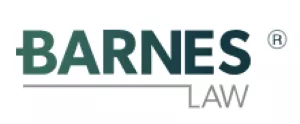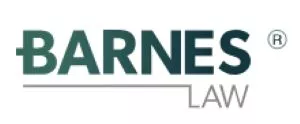- with readers working within the Securities & Investment industries
- within Tax topic(s)
In the digital age, one false post, review or comment can spread far and fast. For individuals and businesses in the UK, this can be detrimental to reputation and affect revenue. This article explains what UK law says about defamation, what you can do if you are defamed online, and how to proactively protect your reputation.
Legal Framework
Online defamation involves the publication of false statements that damage a person's reputation. The Defamation Act 2013 instructs that a claimant must show that the publication has caused, or is likely to cause, 'serious harm' to their reputation. For businesses, that harm must materialise into serious financial loss. The Act also sets out key defences, including showing that the statement was true, that it was an honestly held opinion, or that it was made on a matter of public interest.
Under the law, not every abusive post will meet the serious harm threshold for defamation. For those facing persistent or targeted campaigns, the law provides other avenues. The Protection from Harassment Act 1997 makes it unlawful to pursue a course of conduct that amounts to harassment, and the courts have recognised that online"pile-ons" or repeated trolling can meet this definition. Victims can obtain civil injunctions to stop the behaviour and may also claim damages, and in more serious cases, harassment can attract criminal liability.
The Malicious Communications Act 1988 and section 127 of the Communications Act 2003 provide protection under criminal law. These provisions make it an offence to send messages that are grossly offensive or indecent. They cover emails, texts and social media posts. More recently, the Online Safety Act 2023 has introduced new duties for technology platforms to tackle illegal and harmful content. While enforcement is still developing, the OSA signals a much stricter approach to regulating online spaces in the UK.
Recent cases show how seriously the courts are now treating online harms. In June 2025, the High Court ordered the operator of the gossip forum Tattle Life to be unmasked after performers Neil and Donna Sands brought defamation proceedings. The court awarded damages and held that anonymity could not shield the operator from accountability. The law is generally proactive in favour of the victim of harassment, or defamation, as long as there is clear evidence.
How can I protect my digital reputation?
Prevention is better than cure. Individuals and businesses should be proactive in managing their online presence. Setting up Google alerts or using reputation monitoring services can help track mentions across platforms. Businesses should have clear social media and review policies, ensuring staff respond consistently and appropriately.
More importantly, training teams to recognise and report abuse early can make all the difference.Most social networks and review sites have takedown procedures for defamatory or abusive content, and a clear report is often enough to secure removal. If this does not resolve the issue, solicitors can send a formal letter before action demanding removal and correction. In cases of persistent harassment, the civil courts can grant injunctions to prevent further abuse.
A common mistake that most businesses make is to confront any negative responses with an immediate response. However, oftenthis is not the best option; rather, demonstrating a customer-friendly outlook is much more beneficial, especially in a time where anything can go viral online. Promoting positive, accurate content and addressing complaints head on, whether through blogs or press releases, can also help maintain a positive relationship with consumers.
Conclusion
Ultimately, protecting your digital reputation requires a holistic approach. The law continues to evolve in response to the challenges of the online world, and courts have shown a willingness to take robust action. For anyone facing reputational damage, the key is to act early, gather evidence, and seek professional advice on the most effective route forward. In a digital landscape where reputation can be destroyed in moments, taking proactive steps to protect it is one of the most important investments you can make.
Key Takeaways
- Set up Google Alerts or use reputation monitoring tools to spot harmful content early.
- Have clear internal policies so staff respond consistently and avoid escalating issues.
- Escalate as a last resort when needed, through solicitors' letters, civil injunctions, or police involvement in serious cases.
- Keep records. Screenshots, dates, and URLs are vital evidence if legal action becomes necessary.
- Train teams to recognise abuse and know the reporting routes, so threats are contained before they spread.
The content of this article is intended to provide a general guide to the subject matter. Specialist advice should be sought about your specific circumstances.


